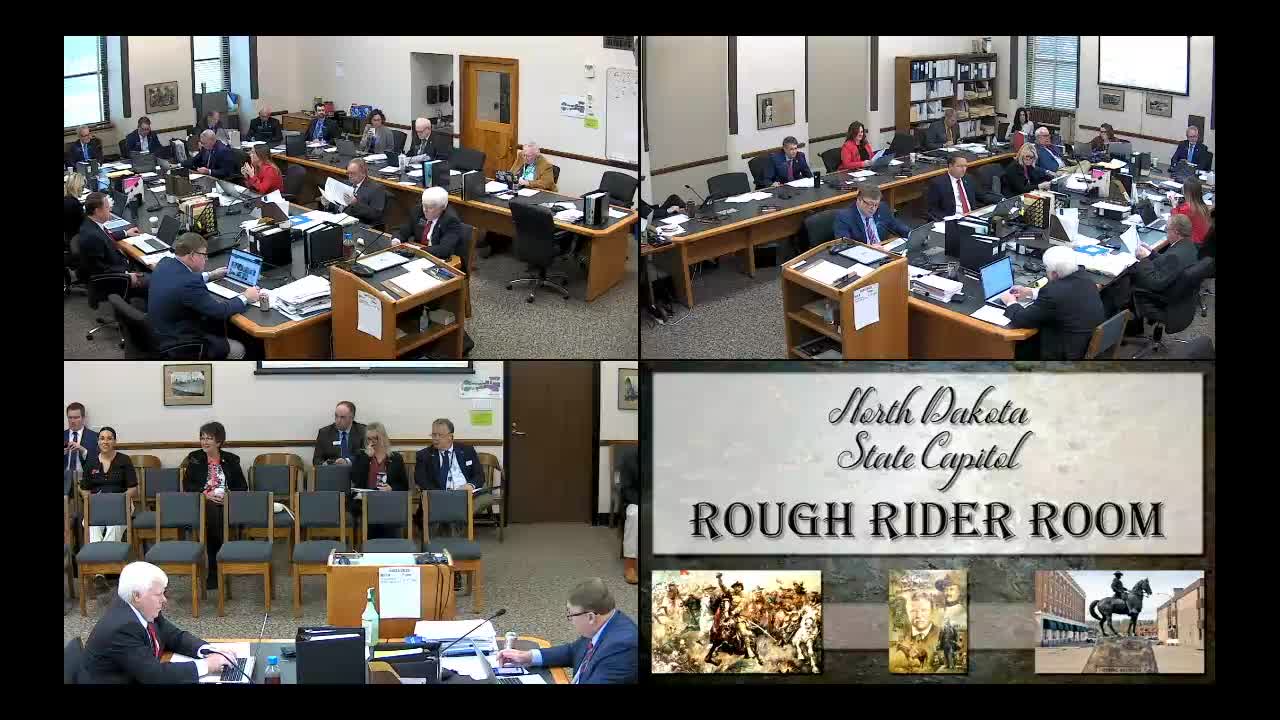House panel shifts Hub City Debt Relief Fund into oil-producing counties’ share, reduces appropriation
Get AI-powered insights, summaries, and transcripts
Subscribe
Summary
The Appropriations Committee approved an amendment to Senate Bill 2323 that moves a proposed Hub City Debt Relief Fund out of the state share of the oil-and-gas gross production tax and into the distribution to oil-producing counties, Representative Richter said.
The Appropriations Committee approved an amendment to Senate Bill 2323 that moves a proposed Hub City Debt Relief Fund out of the state share of the oil-and-gas gross production tax and into the distribution to oil-producing counties, Representative Richter said.
The change shifts the $50 million funding source away from the state 1% share and instead takes the money from the four large oil-producing counties’ distributions; the amendment also reduces the program’s effective allocation to about $10.5 million per year (roughly $21 million per biennium), Representative Richter said. "This bill is to create a Hub City Debt Relief Fund. What the amendment does is it moves the Hub City Debt Relief Fund from the 1% side of the gross production tax to the 4 fifth side," Richter told the committee.
Why it matters: the panel’s move is intended to return $50 million to the State Investment Fund (SIF) that otherwise would have been taken from the state share, while limiting Hub City relief to debt incurred during the oil boom years. "The debt that they accrue has to be the debt that was accrued between 2012 and 2025," Richter said, specifying the program targets legacy infrastructure bonds and similar obligations tied to oil-related buildout.
Details of the amendment: Richter and staff described several technical changes. The amendment converts what had been a one-time appropriation into a monthly allocation in the distribution formula, narrows eligible debt to obligations incurred from 2012 through 2025, and lowers the annualized distribution to the hub cities to approximately $10,500,350 (combined) per year, for about $21,000,700 per biennium instead of $50,000,000. The counties identified as the primary funding base were described in committee as the large oil-producing counties: Mountrail, Dunn, McKenzie and Williams.
Representative Pyle asked whether the program pays cities’ general bond debt or special assessments assigned to property owners; Richter said eligibility depends on the local debts each city accrued and that, for example, Williston’s debt included water treatment and other infrastructure bonds. "I believe it's to pay on their bonds that they have incurred," another committee member added.
Committee action: Representative Richter moved approval of Amendment 4007 to engrossed SB 2323; Representative Kompanik seconded. The roll call recorded 22 yes, 0 no and 1 absent and the amendment carried. The committee then voted to advance Senate Bill 2323 as amended; the motion to pass carried by the same recorded margin and Representative Richter agreed to be the bill carrier.
What the committee did not decide: The amendment narrows eligibility, but committee discussion did not specify administrative rules, application deadlines or an implementing department. Committee members said cities and counties had been consulted, but no implementation timeline or department assignment was named on the record.
Next steps: With committee approval, the amended Senate Bill 2323 will move to the floor and then to conference as required. Committee members said counties and cities affected had been consulted and conferees will carry the provision forward.
